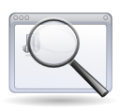MOSEP Module 4
 |
MOSEP ePortfolio Tutorial: Module 4 Assessment of ePortfolios |
Overview / Introduction - Module 4 Session 1 | Session 2 | Session 3 | Session 4 |
Assessment of Learning outcomes and evaluation of the learning process
In this module you will work with your course tutor to develop the skills and understanding that will enable you to assess ePortfolios. Variety of activities can be used to facilitate and validate assessment.
On a general view, a fair assessment of competencies or learning outcomes is the base for democratic society, where jobs and opportunities are not a question of birth or money. Beside this sophisticated view, assessment is an unloved, but important question for educators and teachers, because it defines and directs the learning process directly and indirectly.
Keri Facer, Director of Learning Research Futurelab, writes in the foreword of a study about e-assessment his increasing interest in assessment:
"I have to admit to being someone who for many years has avoided thinking about assessment – it somehow always seemed distant from my interests, divorced from my concerns about how children learn with technologies and, to be honest, just a little less interesting than other things I was working on… In recent years, however, working in the field of education and technology, it has become clear that anyone with an interest in how we create equitable, engaging and relevant education systems needs to think long and hard about assessment.
What I and many others working in this area have come to realise is that we can’t just ignore assessment, or simply see it as ‘someone else’s job’. Assessment practices shape, possibly more than any other factor, what is taught and how it is taught in schools. At the same time, these assessment practices serve as the focus (perhaps the only focus in this day and age) for a shared societal debate about what we, as a society, think are the core purposes and values of education. If we wish to create an education system that reflects and contributes to the development of our changing world, then we need to ask how we might change assessment practices to achieve this." (see http://www.futurelab.org.uk/research/reviews/10_01.htm)
The 'purpose of assessment' is to provide an evaluation of hitherto learning and to give a feedback and recommendations for future learning.
According to JISC (2007, p. 6) assessment may be used at each of the three stages at which a learner's attainment and progress come under review:
- diagnostic assessment of a learner's knowledge and skills at the outset of a course.
- formative assessment that provides developmental feedback to a learner on his or her current understanding and skills. Formative assessment can also be described as assessment for learning since an assessment that is entered into voluntarily, and on which no final qualification depends, can prompt learners to adjust their own performance.
- summative assessment is the final assessment of a learner's achievement, usually leading to a formal qualification or certification of a skill or competence. Summative assessment is also referred to as assessment of learning.
The training of the Module 4 "Assessment of Learning outcomes and evaluation of the learning process" follow on four sessions:
- Session 1: Assessment as a hidden curriculum
- Session 2: Learning goals and operationalisations
- Session 3: Feedback and peer-communication
- Session 4: Evaluation of a learners portfolio
The objectives of this module are that participants will be able to:
|
|
The competences of the teacher-trainers gained in module 4:
The competences of the learners gained in module 4:
|
The tutor should make general presentation (10 minutes) on Module 4 including the following points:
|
